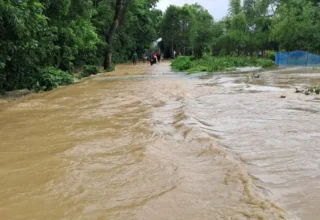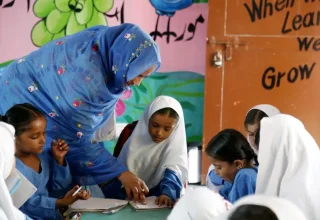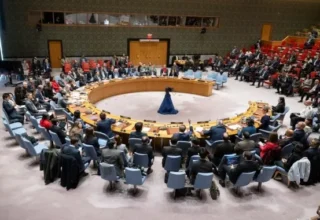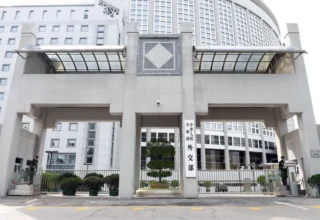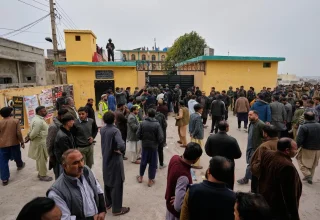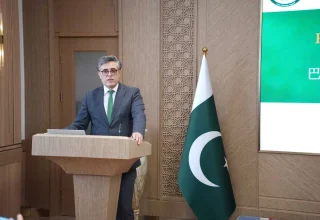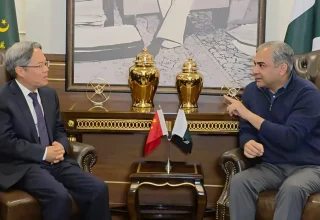ISLAMABAD: Addressing a post-budget briefing on Saturday, Federal Minister for Finance and Revenue Ishaq Dar said the government intends to address all concerns of stakeholders, stressing that “we have been able to halt economic downfall, now we want to take the economy towards growth.”
For starters, with effect from Monday two committees will be set up in the Federal Board of Revenue (FBR) to address budget anomalies, said the senator while briefing media persons along with Minister of State for Finance and Revenue Dr Aisha Ghous Pasha.
He said the budget envisages federal Public Sector Development Programme (PSDP) worth Rs1,150 billion, which is the highest ever in terms of its size.
“I believe that if the PSDP amount is invested transparently, the modest target of 3.5% economic growth is easily achievable”.
Dar said that the economic growth target of 3.5% is “doable” and “not unrealistic”.
He noted that while multiple multilateral institutions including the Asian Development Bank (ADB) have “conservatively” projected a 2% growth, the International Monetary Fund (IMF) itself has said that the country could achieve a 3.5% growth, while Bloomberg and Fitch expect 4% growth.
“Growth will result in employment and will improve the macroeconomic indicators, reduce inflation and policy rate,” he said, adding that the government’s first priority is to achieve the 2017-18 macroeconomic indicators.
Giving the example of India, Dar said that Pakistan “offers great potential” in the IT sector, and the government has offered major incentives to it.
The finance minister said the defence budget of Rs1,804 trillion is not too high as compared to “our neighbouring country”.
“I believe this is not too ambitious and is realistic”.
Dar noted that the Public Debt to GDP ratio was estimated at 66.5%, as he slammed the previous Pakistan Tehreek-e-Insaf (PTI) government for raising public debt liabilities from Rs30 trillion to Rs60 trillion.
“The increase in debt stock and policy rate is a killer, which is reflected in a high debt servicing, which is the largest item in this budget,” said Dar, adding: “I am hopeful that we are able to reverse this trend and reduce it.”
Dar said dozens of countries tax firms on windfall gains, which come at the cost of consumers. “The government after research and discussion decided that it should part of the law, which would be available after the Finance Bill is passed.”
Dar said that after much deliberation the government decided to impose a 50% tax.
“It is a positive thing, and those segments which profit from the exploitation of the public, I believe a bulk of that profit should come back to the exchequer,” he said.
“We need to focus on improving our per acre yield, India’s East Punjab yield is double than ours. We want to bring an agricultural revolution,” said the minister.
He also said the government will “strictly monitor” disbursement of the agri-credit announced in the budget, adding that the State Bank will remain vigilant in this regard.
Dar said the country’s SME sector is “very weak” and the government is considering setup a rating agency to facilitate SMEs in seeking loans from banks.
In order to encourage remittances, overseas Pakistan will not pay final tax while purchasing property, said Dar.
For those who remit $50,000 to Pakistan annually, a ‘diamond’ category has been introduced through which several incentives will be provided to citizens abroad.
Dar said that the target non-tax revenue of Rs2,963 billion is achievable. “The non-tax revenue includes SBP profit, which is projected at Rs1,113 billion, second measure item is Petroleum Development Levy (PDL), which is projected at Rs869 billion. I believe that the projections are very realistic,” he said.
“The government does not plan to increase PDL from Rs50,” he added.
On FBR tax revenue target, Dar was of the view that the Rs200 billion of new tax measures are not new and will not have an inflationary impact.
He said sales tax on the import of edible oil remain, adding that “international prices have declined, which has been translated to the consumers.”
On privatization of state-owned enterprises (SOEs), Dar said that the privatization of PIA and Pakistan Steel Mills is in advanced stages.
“We are deliberating on outsourcing of airports and the IFC (International Finance Corporation) is engaged as the transaction advisor.”
They have told us that companies from 12 countries are interested in this process. We are trying to start a bidding process of first airport outsourcing in July,“ he said.
Answering a question on the rapid population growth of the country, Dar said the issue is “alarming and needs to be addressed within religious boundaries”.
“The government is very seriously discussing this, as high population growth will eat away any development,” he said.
The minimum wage has been increased from Rs25,000 to Rs32,000 said the minister, noting it had earlier erroneously been published as Rs30,000.
He also said “I want to categorically state there is no levy of sales tax on packaged milk,”, noting that it had been proposed but the government decided against it.
Dar has repeatedly claimed that the Ministry of Finance has a ‘Plan B’ in the event that the IMF’s ninth review remains pending.
At Saturday’s press conference, he said once again that there is a Plan B, “but I would like to state that Pakistan would not default”.
Dar said he remains hopeful that Pakistan’s GSP plus status, which gives the country duty-free access to the EU market, would be extended. He said the Ministry of Commerce is working with the authorities in this regard.
The finance minister said that the petrol cross-subsidisation scheme was “technically doable” but has nothing to do with the budget.
“As we are involved in a process of lending and borrowing, thus the scheme is not finalised yet,” he said.
On Friday, the Pakistan Muslim League-Nawaz (PML-N)-led coalition government presented the ‘election year’ budget for the fiscal year 2023-24 on Friday, amid serious economic challenges and protracted delay in the 9th review of the International Monetary Fund (IMF) programme.
Ishaq Dar presented the second budget of the coalition government with an outlay of Rs14.46 trillion and a budget deficit of Rs6.923 trillion or 6.5% of the GDP consequent to projected Rs13.320 trillion current expenditure against Rs9.2 trillion FBR revenue for the next fiscal year.
The provincial surplus has been projected at Rs650 billion and the overall primary balance of Rs380 billion or 0.4% of the GDP.
Later Dar, while talking on Geo TV hours after presenting the national budget on Friday, said that Pakistan is speaking to its bilateral creditors to restructure its debt.
“We are in the process of engaging bilateral lenders to restructure debt”.
“No haircuts will be made… interest will be serviced, and principal payments will be staggered,” he said.
In order to unlock funding under its long-delayed 9th review, Pakistan is required to secure financing commitments to close the $6 billion gap.
To date, the authorities have managed to get commitments of $4 billion, mainly from Saudi Arabia and the United Arab Emirates (UAE).



















